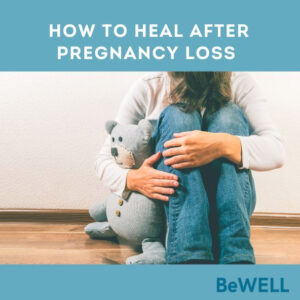Disordered Eating, Body Image, and Who it Affects
Many individuals struggle with the way they see themselves, negative body image, and with their relationship with food. Body image is how one sees themselves physically and the value and worth they associate with what they see. Our body image is more closely related to the mental picture we see and what we think about our bodies, rather than the actual physical picture. Things like culture, gender identity, race, age, personal experiences and memories are all closely tied into our body image and how we see ourselves. There is no singular right way to see oneself and it can be a complex and ever-changing relationship, but if you are struggling with negative self talk, having a difficult time seeing yourself as valuable because of the way you see your body or how you feel inside your own body, or your relationship with food, the therapists at Be.Well may be able to help.
What is Body Image?
Positive body image is a true and accurate perception of your shape and physical appearance. Having a positive body image, means acceptance about one’s body and the understanding that value and self worth does not come from how you look. Individuals with a positive body image recognize that their body says very little about their character. Negative body image, or body dissatisfaction is a distorted perception of one’s shape and the value that their shape holds. People with negative body image often feel uncomfortable in their body and may struggle with anxiety, shame, guilt, and feelings of worthlessness. Individuals who have high levels of body dissatisfaction often compare their body to others and see themselves as less than, or feel flawed in comparison. These thoughts and feelings can often lead to low self esteem, depression, isolation, a disordered relationship with food or exercise and eating disorders.
What is Disordered Eating? And When Should I Worry?
Eating disorders are characterized as a severe and lasting disturbance in eating behaviors associated with negative and distressing thoughts. Many people associate eating disorders with individuals who are severely underweight and suffering from anorexia, or with someone who suffers from bulimia and purges after meals, but disordered eating is a much wider scope of behaviors and can affect more people than you may even realize.
Disordered eating can affect anyone, not just those who suffer from body dissatisfaction, and can include common behaviors such as excessive calorie counting, restrictive dieting, over exercising, or obsessing about food. If you are asking yourself, “is my behavior disordered?” it may be time for you to talk to a therapist, like the ones at Be.Well.
According to Be.Well therapist, Arianna Eisenberg, who specializes in anxiety, obsessive compulsive disorders, and eating disorders advises you may need to seek help if you find yourself unable to stop thinking about food. “If you are excessively planning your next meal or worrying about letting yourself eat certain foods, saving up calories, or declining social invitations because of food and the stress of being around food, you may be in danger.”
Arianna explains that eating disorders and many disordered behaviors surrounding food fall under the obsessive compulsive umbrella and is often a negative coping skill that may have very little to do with food at all. “Stress, anxiety, trauma, even going back to work post pandemic, can lead to these negative coping skills you’ve found yourself in.” She explains that these behaviors may also not surround food at all. Excessive exercise, an obsession with closing the rings on your Apple Watch, body checking, and refusing to take rest days from the gym, may also be signs of a problem. “If you find yourself obsessively checking out your reflection in the tv or in store windows as you pass, in order to critique your body, or have intrusive thoughts about your body that makes you feel like you need to workout, you could benefit from working with a therapist” says Eisenberg.
Social Media and Body Image
According to the National Eating Disorders Association there is an increasing correlation to media consumption and both body dissatisfaction and disordered eating. Mass media provides influential context for body ideals, and can play a huge part in how we see ourselves. Social media, television, and magazines can all reinforce ideals that can lead to body dissatisfaction. Arianna warns about consuming too much social media that reinforces negative behaviors, such as “what I eat in a day” accounts or fitness influencers who glorify obsessive and disordered behaviors. Social media can also be a place where negative and even dangerous behaviors are positively reinforced. Comments and praise about someone’s body may reinforce and perpetuate their unhealthy behaviors. Eisenberg urges individuals to be mindful about the types of media they are consuming and limit exposure to media that may give way to unhealthy behaviors or induce negative or intrusive thoughts. If you or someone who you love is suffering with disordered eating or intrusive thoughts, a Be.Well therapist is here to help.
How Therapy Can Help
Because distorted body image and disordered eating are often coping mechanisms for deeper issues, therapy, like that offered at Be.Well, is a great way to process and address the underlying root cause. Arianna, and other Be.Well therapists, blend traditional practices, such as talk therapy, with newer techniques such as cognitive behavioral therapy (CBT) and exposure/response prevention (ERP) therapy to help clients who struggle with eating disorders and body dissatisfaction create a life of structure, balance, and acceptance.
Many individuals struggle with the way they see themselves, negative body image, and with their relationship with food. If you or someone you love is struggling with disordered eating or negative body image, you are not alone. With guidance, you can take control of your thoughts and feelings toward yourself and the dissatisfaction you are feeling about your body. be.Well and Indigo 108 are here to help, if you are looking for a safe and judgment free space to support you through disordered eating or body image struggles. With offices in Midtown Manhattan, New York and Hoboken, as well as virtual therapy sessions, Indigo 108 and Be.WELL. can help you take control of your mental well being, and navigate your way through this challenging journey, by connecting your mind, body, and spirit.


